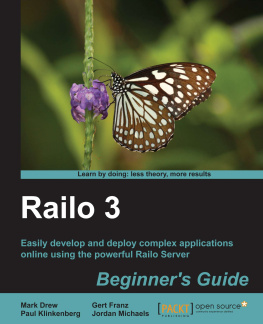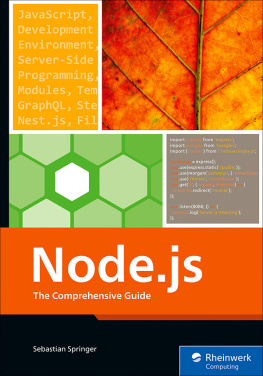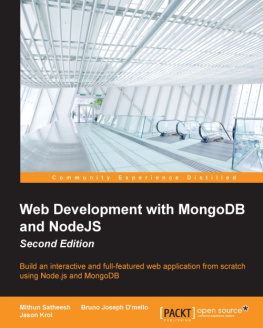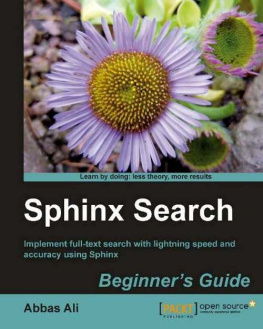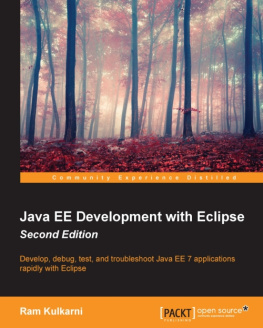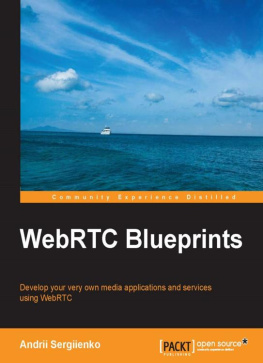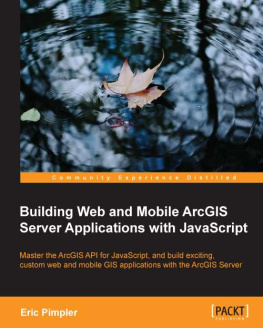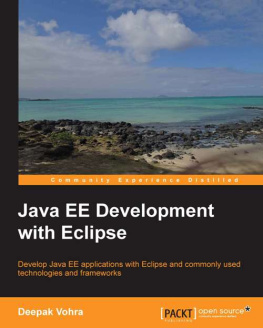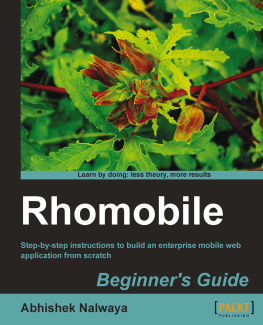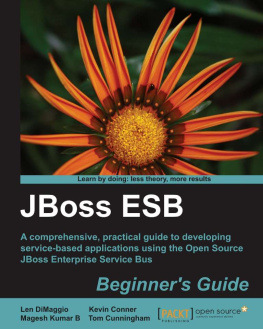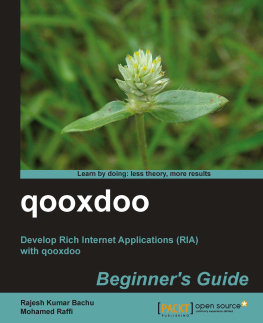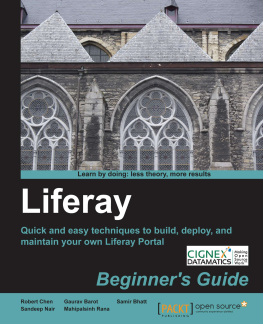Mohd. Sahil
About the Authors
Mark Drew has been developing web applications for a number of clients since the mid 90s. He has been using ColdFusion and writing in CFML since 1996, and even though he has had the occasional forays into Perl, ASP, PHP, Rails, and Java, he is still loving every line of code he has written in CFML.
Mark has been part of the CFEclipse Project developing a CFML IDE and Project Manager for the Reactor ORM Project, as well as contributor to a number of frameworks.
His career has concentrated on e-commerce, web content management, and application scalability for various well-known brands in the UK as well as the rest of the world.
Mark is also a well-known speaker at various conferences on subjects close to his heart, such as ORMs, Frameworks, Development Tooling and Process, as well as noSQL databases and a range of other topics.
Mark lives in Greenwich, London, where the Mean Time comes from. Mark isn't mean of course. He works as the CEO of Railo Technologies Limited ( http://www.getrailo.com), a web development consultancy and Professional Open Source provider of Railo Server.
Really, this book would not have been possible without the help of the below-mentioned people, whom I am utterly indebted to and I shall fulfill all those promises to buy them a beer, even if it takes emptying out a whole brewery. I want to thank Gert Franz, for giving me the opportunity to write this book; Sarah Cullington, for her invaluable advice as an editor; Joel Goveya, for his reminders and motivation to get all the chapters done on time; Paul Klinkenberg, for his hard work and timely offers of help; Roland Ringgenberg, for his Flex and Flash masteryI would have really been out of my depth on that one! I would also like to thank Sean Corfield, Peter Bell, and A J Mercer, for their awesome feedback on chapters in the process of writing this book; Todd Rafferty, for his great contributions and eagle eye; Andrea Campologhi, for his stellar AJAX skills and contributions to Railo Server; and Michael Offner, for all his skills in developing Railo Server itself and giving me peeks behind the curtains to how it all works. A big thank you to all the folks in the Railo Users mailing list for keeping the community alive and kicking. Finally, I would like to thank Charlie Khan and The Organ Grinder for the musical accompaniment that helped clarify my thoughts as I went along!
Gert Franz was born in 1967 in Romania. He moved to Germany in 1982. He studied Astrophysics in Munich in the early nineties and lives in Switzerland since 1998.
Gert is a father of three children and lives in with his Swiss girlfriend, somewhere next to Zurich. Even though the jobs Gert had did not involve Astronomy in any way, he still remained loyal to it as a hobby and from time to time he taught local classes about the wonders and miracles of Astronomy.
In the past 20 years, he worked as a Senior Programmer for several different companies and leads Railo Technologies Switzerland as a CEO since its foundation in 2007.
Gert is a well-known speaker who appeared and appears at several different conferences around the world. Mostly, he speaks about Railo and/or performance tuning. Besides speaking, Gert programs a lot, and does all different kinds of consulting related to Railo, CFML, databases, and system architectures. He is a specialist in performance tuning, especially with MSSQL and Railo.
Next to the things mentioned before, Gert hosts Railo training sessions and performance-tuning training sessions around the world. Along the way, Gert acquired a deep knowledge in Railo, CFML, Delphi, C, ASP, SQL, SQL tuning, and other programming-related things.
Paul Klinkenberg (1979) is a long-time CFML addict, living in The Netherlands with his wife Emma and baby daughter Luce. His history in both Commercial Economics and Fine Arts were no match for the enthusiasm he got from programming. In his 10+ years of experience in programming in CFML, he has always been investigating and pushing the boundaries of this magnificent language constantly. As a Railo Team member, he is in charge of managing and promoting Railo Extensions. He never stops thinking and creating new features for Railo Server, and tries to evangelize Railo as much as possible.
He shares code projects and ideas via his weblog http://www.railodeveloper.com. Though it has gotten a lot quieter on his blog lately, as his beautiful baby daughter Luce, born in 2011, gets a lot of his attention.
Paul is currently employed at the Dutch web-development company and Railo partner Carlos Gallupa BV. He is also working on projects through his own company Ongevraagd Advies, which means unasked advice . Friends and clients often say the name suits him really well, with his power to thoroughly analyze project plans and ideas, and come up with new ideas and suggestions out of the blue.
I'd like to sincerely thank my lovely and caring wife for the patience she had with me. It's probably not easy to share your husband with a programming language. To Luce: je papa houdt van jou, schatje!
Jordan Michaels currently participates in the Railo Team as the Community Deployments Coordinator, where his duties include coordinating efforts and documentation on how to deploy Railo in various environments. Jordan has been a CFML enthusiast and developer for just over 8 years, and is now the co-owner of Vivio Technologies where he operates as a CEO. Jordan is an active participant in the CFML community providing evangelism, community support, and has also printed various articles on CFML. Jordan is also an amateur musician and science buff. Jordan currently resides with his wife and two sons in WA state, USA.

